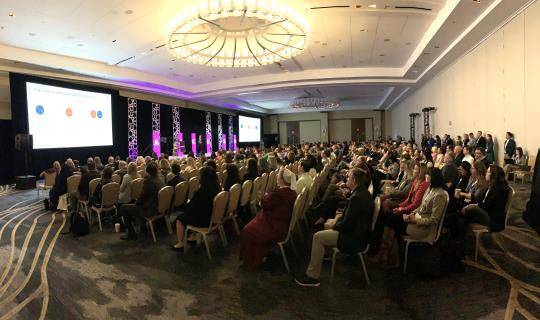Navigating new access hurdles in Europe: A conversation with Cencora’s EU HTA Lead
By Ruairi O'Donnell, PhD

5-minute read

One such example is the creation of a new Center of Excellence focused on European Health Technology Assessment (HTA).
As part of this initiative, we sat down with our new EU HTA lead, Ruairi O’Donnell, to discuss the importance of the role and what he hopes to achieve in the coming years. In this Q&A interview, we explore key challenges faced by manufacturers navigating the new EU HTA landscape and discuss critical moments manufacturers must seize in order to secure optimized access to patients across Europe.

Tommy Bramley, SVP, Market Access and Healthcare Consulting
Q: Ruairi, why is your new role as the EU HTA lead at Cencora important and what do you hope to achieve?
Ruairi O’Donnell: The introduction of the EU HTA Regulation, which takes effect in January 2025, is a major change in the pathway that manufacturers need to follow to bring their innovations to patients in Europe. As the EU HTA lead, my role demonstrates Cencora's commitment to European market access and our partnership with the life sciences industry.My goal is to provide our clients with best-in-class strategic and technical support for navigating this new hurdle and optimizing access to new innovations. Internally, I wish to be a recognizable center-point for our domain experts, helping them stay abreast of policy changes and best-practice as it develops.
Q: What are the key challenges facing manufacturers with the new EU HTA processes?
Ruairi O’Donnell: As I see it, there are currently three main challenges. Uncertainty is the first. Despite the recent publication of the first Implementing Act, there remains uncertainty on how the technical demands of the Joint Clinical Assessment (JCA) will be implemented. In addition, the downstream impact of JCA on national access procedures across Europe is also very uncertain. As we participate in the first few JCAs and gain more experience as an industry, we will learn what best-practice looks like and better understand the implications of the new regulations – but this will take time.Indeed, time is the second big challenge. Time constraints present a challenge both in terms of preparedness and during the JCA process itself. Adequate preparation involves organizations working early to be ready for JCAs by adjusting strategic preparation and evidence preparation timelines accordingly, in parallel with the European Medicines Agency (EMA) regulatory process. It is crucial to establish a project plan with clear timelines to ensure that the right questions are asked at each stage and necessary research and thinking are conducted in a timely manner.
Then, during the JCA procedure, manufacturers have only 90 days to submit their dossiers after the release of the consolidated Population, Intervention, Comparator, and Outcome (PICO) frameworks. This 90-day window creates immense time pressure within the entire system, emphasizing the urgency for early preparation and timely action.
The third challenge is: Lack of influence. Currently, there is limited patient and manufacturer input in shaping the scope of the process and designing the PICOs – a cause of concern across the industry. Indeed, for manufacturers, meaningful dialogue about the product and evidence during the process is lacking, with only a few moments of technical clarification currently planned. This one-way communication process places great emphasis on the submission to accurately present the evidence and value arguments for the new intervention. Submissions will need to be accurate, comprehensive, and representative of the product's value proposition; quality and attention-to-detail becomes paramount in this context.
Q: Specifically for the JCA, what methodological challenges do you foresee?
Ruairi O’Donnell: There are several methodological challenges that can be anticipated. The first challenge relates to compiling and synthesizing the required evidence for the JCA. This involves systematically gathering evidence based on established standards of evidence-based medicine via large-scale systematic reviews. This task becomes more complex when dealing with multiple comparators and populations, requiring significant technical expertise and resources.The second challenge is associated with assessing comparative effectiveness between the new intervention and defined comparators in the PICO framework. This will likely demand advanced statistical analysis techniques due to the complexity of analyzing data from numerous comparators. Timeliness is crucial in this regard, particularly within the 90-day window after the publication of consolidated PICOs, as during this window there will be a need to rapidly adapt and update analyses accordingly.
The third methodological challenge also revolves around that crunch 90-day timeframe. The technical challenge of responding to the consolidated PICOs and resolving changes to the submission dossier will require high-quality and experienced medical writing. Attention-to-detail, capacity and tight project management will all be key (as per any substantive HTA process like AMNOG, for instance).
Q: What are your thoughts on the importance of PICO prediction and early preparation for companies?
Ruairi O’Donnell: Early preparation and PICO prediction are crucial. It is essential to start the main activities for the JCA process over a year before the planned EMA submission date, allowing ample time to understand and strategize around the JCA process. However, with regards to PICO prediction, it's important to note that this approach may not be a one-size-fits-all solution. For indications with multiple comparators and commercial risks related to downstream market share, PICO simulation exercises will be necessary during the preparation phase. These activities help minimize risk and maximize outcomes in such complex scenarios.
On the other hand, if there are few comparators, or if overall access success is more dependent on other factors (e.g. pricing for a rare disease intervention), a different approach or better utilization of resources may be more appropriate than conducting a “full” PICO simulation.
Q: What skills and capabilities are essential for achieving success in EU HTA?
Ruairi O’Donnell: With downstream national access in mind, the importance of local knowledge cannot be overstated. It is important to anticipate how different countries may interpret and use the JCA in their own decision making processes, taking into account their unique healthcare systems and priorities. National differences might, for instance, impact the application of PICO criteria in drug assessments in different ways. This requires a deep understanding of local contexts and engagement with stakeholders at the national and regional level.Proficiency and capacity in biostatistics will be of utmost importance. The complexity of the analyses likely demanded by the JCA will require a strong understanding of statistical methods. Having a dedicated statistics team within Cencora enables us to perform these intricate analyses accurately. This capability is vital not only for interpreting data but also for understanding the level of acceptance and its influence on national procedures and access discussions across individual countries.
Lastly, smart strategic planning will play an important role in achieving overall success in addressing EU HTA hurdles. By conducting thorough scenario analyses ahead of time, organizations can better anticipate challenges and opportunities during the JCA process. Our global market access and strategy team at Cencora has extensive experience in pan-European payer landscaping work and value strategy development, making them an invaluable resource for effective strategic planning during EU HTA processes.
Q: What are the critical moments a manufacturer must win as part of EU HTA?
Ruairi O’Donnell: The first crucial moment is “early enough” evidence design, which starts at the end of phase II and involves considering the requirements across Europe, including the JCA. In the past, focus may have just been on major markets in Europe, but now it requires broader thinking across the EU and what PICOs may emerge. Manufacturers should seek to use the joint scientific consultation (JSC) procedure, part of the EU HTA regulation, to gain valuable advice for evidence design.The second critical moment occurs after “the drop” of the consolidated PICOs. Manufacturers need to have pre-considered different PICO scenarios and prepared their first draft dossier in a way that they can respond rapidly post-consolidation.
The third significant moment is effective national engagement post-JCA. Manufacturers should leverage the JCA publication by collaborating with affiliate teams to exploit opportunities or mitigate challenges identified within it. Indeed, affiliate teams should be engaged earlier, participating in scenario analyses ahead of the PICO survey; their local insights and stakeholder influence can be invaluable here.
Q: What aspects of the new role and Center of Excellence launch are you most excited about?
Ruairi O’Donnell: Personally, I find the newness and uncertainty quite exciting! After 20 years in the sector, it is stimulating to have a new procedure, presenting fresh challenges and puzzles to solve. Despite not knowing exactly how it will all unfold, I trust in my experience and that of my Cencora colleagues to navigate this new hurdle with creativity and adaptability.
Moreover, I am eagerly looking forward to stress-busting EU HTA for the clients we will be working with. Our aim is to ease their burden and make their lives easier by providing best-in-class support throughout the EU HTA process. By offering guidance and assistance, we aim to mitigate pain points and uncertainties they may face.
This article is intended to communicate Cencora’s capabilities which are backed by the authors’ expertise. However, Cencora strongly encourages readers to review all available information related to the topics discussed in this article and to rely on their own experience and expertise in making decisions related thereto.





